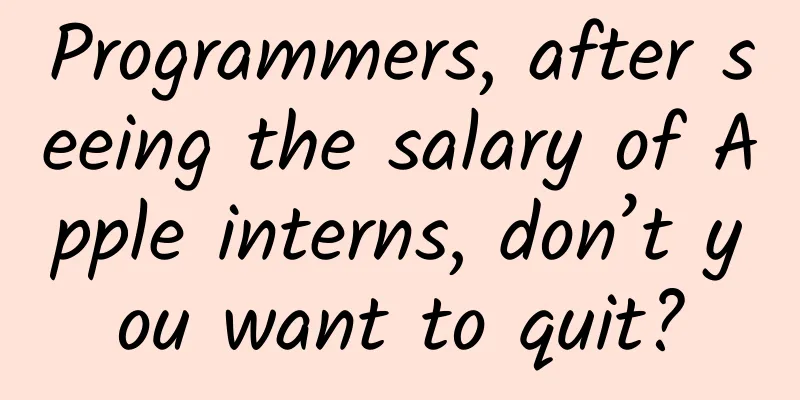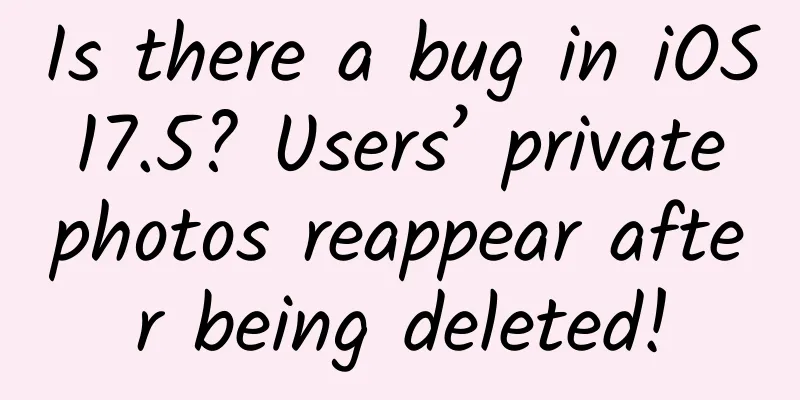Programmers, after seeing the salary of Apple interns, don’t you want to quit?

|
Can you imagine how it feels to just land your dream job, but you can't tell your friends about it, post a single line of text on your Facebook page, or detail your accomplishments on your resume? That's what it's like to be an intern at Apple. "They want to release a product that makes everyone happy but no one has ever heard of it before," said a former Apple intern who called himself Brad. "You can't tell anyone what you do, not even your family." Apple's culture is known for its overemphasis on confidentiality and extraordinary employee loyalty, which is different from most other companies in Silicon Valley. In order to get more information, we interviewed Brad, and here is what we learned: Get the job Brad said that Apple's interviews are very different from those at Google and Facebook. Apple will interview intern candidates for a specific position, and the interview will be conducted by the manager of the team where the position is located. Brad himself has participated in interviews for Facebook interns, and has collected some information from friends who have participated in interviews for Google interns. According to Brad, these companies have different approaches to many things. Google and Facebook first conduct comprehensive interviews with intern candidates, and only after hiring will they assign interns to specific teams and positions. Brad didn't reveal the specific questions he encountered during his internship interview at Apple, but he said he spent an hour or two telling the interviewer about his previous work. “It was a very simple interview,” he said. When he heard he was hired by Apple, he immediately accepted the job. "I was so happy that I told them I would take the job at any salary Apple offered me," he said. Good remuneration Apple offers really generous compensation to its interns. According to Brad, Apple interns earn $38 an hour, which is consistent with salary data published by career website Glassdoor. Brad said that based on this calculation, Apple interns can get $6,700 a month. Brad also said that if interns work more than 40 hours a week, they can also receive overtime pay, which is 1.5 times the normal wage; if they work more than 60 hours a week, interns can get overtime pay of twice the normal hourly wage. This gives interns a chance to save money because they don't have to pay for housing. According to Brad, as long as you don't mind sharing a room with other interns, you can live in one of the free apartments Apple provides to interns in the Bay Area. In fact, it’s one of the fondest memories of Apple intern Maxime Britto, who interned on the Safari team in 2008. “The best thing about accommodation is that you’re not alone,” Brito said. “You’ll be sharing an apartment with three other interns from all over the world, so it’s a great opportunity to learn and embrace a different culture.” If you don't want to share a room with other interns, Apple will provide you with a $1,000 monthly housing allowance. If you move to the Bay Area specifically to work for Apple, the company will provide you with a relocation allowance of around $3,300. “They hire interns from all over the world, and they want to make sure that they don’t have to worry about anything,” Brad said. Apple has been working hard to make it easy for people from all over the world to work at Apple. Brito said that when he moved to the United States from France, Apple provided him with a lot of help with the relevant paperwork. He also noted that Apple employees were understanding, knowing that English was not his first language. “Everyone was very willing to help me, both during work and during breaks,” he said. Culture of secrecy Brad said Apple's goal is to be "unexpected and fun," so keeping projects as secret as possible is key. Apple also ensures that employees from different departments don't find out what others are working on. "Everything is locked down, even taking pictures in the park is not allowed, it's crazy," Brad said. This is the idea that Apple instills in interns on their first day at the company, which Brad calls "secrecy training." It turns out that this is not just about avoiding leaks, but also an art of management. Sometimes, Apple employees even work on a product without knowing what it is. Brad said he spoke to an employee who worked on the first iPad in 2010. The employee said he had been working on a 9.7-inch display for a year or two, and he had no idea what it was for. "They didn't know if it was a big phone or a small laptop," Brad said. "They didn't know what it was until Jobs stood in front of the public and announced it. When Jobs showed the iPad, they realized that was what they had been developing for the past year or two." Nate Sharpe, an engineer who worked as an intern in Apple's iPod product design department in 2008, said that confidentiality was one of the best features of the job. He wrote in a post on Quora: "It's really cool to be involved in the product development process before the product is released. You can see detailed information about previous products, some of which have never been released to the market." Meet the executives Apple offers interns the opportunity to meet with company executives, with one of the company's top executives giving presentations to interns every few weeks, including CEO Tim Cook and chief designer Jony Ivy. When Brad was an intern at Apple, he attended a panel discussion with the then-VP of Camera Technology. Brad did not name the executive, but according to John Kerr's LinkedIn profile, he was the VP of Camera Technology for Apple's iPhone, iPad, and Mac products. These seminars usually have a clear theme, such as introducing the business department where the speaker is located, how the speaker was promoted to vice president step by step, etc., and then the speaker will answer questions from the interns. They also revealed some interesting facts about Apple products and the materials that go into making them. For example, Brad learned about some of the challenges that went into making the iPhone 6 camera when he sat in on a presentation by a camera technology executive. One intern asked: What was the decision-making process when Apple was developing the iPhone 6 camera? Brad said there were some minor conflicts between the camera team and the design team led by Ive. “It was like a tug of war,” Brad said. “But they finally decided to let the camera stick out a little bit.” Brad said Ive didn't want the camera to protrude because he thought it would ruin the overall aesthetic. "They have two choices: make the phone thicker or use a worse camera," Brad said. Brad said he also heard from the vice president of operations about what it was like to manage Apple's massive iPhone production process. "Some of the iPhones that come off the assembly line are not perfect and cannot be sold," Brad said. Many people don't want to find other jobs. Brad said that in addition to its emphasis on confidentiality, Apple is also different from other Silicon Valley technology companies in other ways. In other Silicon Valley companies such as Google and Facebook, employees may be poached by other companies or resign to start their own companies after working for a few years. However, Apple employees are extremely loyal to the company and usually work at Apple for 25 to 35 years. Sharp also pointed out that if the intern can achieve some great results during his studies, he may be converted to a full-time Apple employee after the internship. He said: "It's crazy. I've never seen anything like this in any other company. They had face-to-face meetings with Jobs. They were so loyal that many of them didn't want to look for other jobs. They didn't even want to hear anything else. Brad said this extraordinary loyalty is useful, suggesting that Apple's subsidies are good, even for relatively low-paid employees. “You see people driving sports cars to work, and they’re just regular engineers,” he said. “Managers are very approachable and not condescending at all. So you can understand why they don’t want to go anywhere else.” |
<<: Subversive design - Apple cancels the Home button
>>: Google Glass cannot see the road ahead, where is the future heading?
Recommend
Is it true that the sun once had a twin?
The Sun is the only star in our solar system, but...
Mobile QQ upgrade hides "bull horn icon" Easter egg, netizens: I feel more awesome
Yesterday, mobile QQ was upgraded to version 8.5....
SEM account performance is not good? 80% of the time it’s because you are thinking wrong!
After reading this article, you can improve in th...
When people in the Song Dynasty were sailing, they saw "a woman on the sea", and "she" turned out to be...
According to the Records of Strange Things, a man...
If you want to play short videos, you also need to know these
Mobile video is coming of age. The " Mobile ...
The left and right choices for traditional TV programs: exclusive broadcast or cooperation?
Competing for the attention of young audiences ha...
2019 B2B Industry Marketing Promotion Strategy White Paper Full Version
The decision-making cycle of users in the B2B ind...
Google's official MVP sample code reading notes
Unraveling the project structure According to int...
In order to accurately locate the position of flies in the house, he invented the rectangular coordinate system
Produced by: Science Popularization China Produce...
Wearable devices: Has the war among giants begun?
On March 25, the three IT giants Intel, Google an...
Why didn’t Apple make a large-screen iPhone before?
Various news proves that Apple is preparing to put...
Review of Google's $149 Chromebook: It feels great
The famous American technology website BI publish...
Mr. Qian: 30-day trend investment training camp
Teacher Qian: 30-day trend investment training ca...
Quark Product Operation Analysis Report
With the widespread promotion of mobile Internet,...









